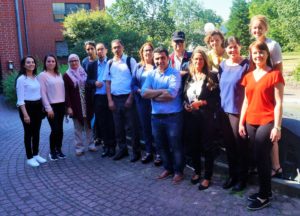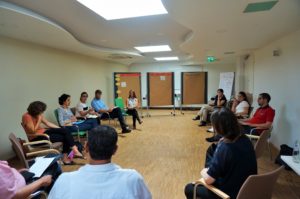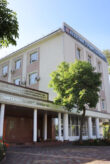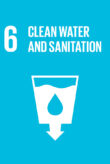How is the photovoltaic sector structured in Germany? Which quality-assuring mechanisms exist to guarantee the quality and sustainability of PV facilities? And what does Tunisia still need before it can set up a functional quality infrastructure in the PV sector? All of these questions were at the focus of a one-week study trip which took place in Braunschweig, Berlin and Frankfurt on June 23-29.

participants of the study trip
The participants of the study trip were representatives of different Tunisian institutions – those that are of major importance for the set up and development of powerful quality infrastructure in the Tunisian PV sector: the National Agency for Energy Conservation (ANME), the Tunisian Company of Electricity and Gas (STEG), the ministry of industry and energy (MIPME), the ministry of trade, the consumer protection agency (ODC), the institute for standardization and verification (INNORPI), the industry chamber for photovoltaics (CSPV) and the PV testing laboratory of the Mechanical and Electrical Industries Technical Center (CETIME).
The aim of the study trip was to demonstrate how the different German QI institutions are positioned in the PV sector: What responsibilities do they hold and how do they interact with each other? Which tasks do they perform? What are the demands on the quality infrastructure for photovoltaics to guarantee the quality of PV facilities and to build the faith of consumers in the technology? All these factors can contribute to the sustainable development of photovoltaics in Tunisia. The study trip was organized in close cooperation between the two projects “Strengthening quality infrastructure for photovoltaics” of PTB and “Developing the solar energy market in Tunisia” of the GiZ (on behalf of the BMZ).
The study trip began with a visit to PTB in Braunschweig, where the participants learned about the new DSR method for the initial calibration of reference solar cells. In Berlin, visiting the testing laboratory for PV modules of PI Berlin, a talk with the German Solar Association and the International Solar Energy Society and a visit to the Federal Ministry for Economic Affairs and Energy were on the agenda. In Frankfurt, the participants learned the details of PV inverters and became familiarized with the most important standards for PV modules. The study trip ended on a high note with a visit to a 300 kW PV facility in Ramstein (situated in the German federal state of Rhineland-Palatinate).
 Our guests were kind enough to pack Tunisian sunshine and heat in their suitcases: Hot, summery temperatures lasted the whole week and certainly added to the great atmosphere among the participants. The participants intend to establish an ad hoc group after returning to their home country: This group will be used to discuss what the introduction of testing samples of PV modules in Tunisia could look like.
Our guests were kind enough to pack Tunisian sunshine and heat in their suitcases: Hot, summery temperatures lasted the whole week and certainly added to the great atmosphere among the participants. The participants intend to establish an ad hoc group after returning to their home country: This group will be used to discuss what the introduction of testing samples of PV modules in Tunisia could look like.








